PaC has Selected Accra, Ghana as our Continental HQ
We offer immediate pro bono assistance for offset creation optimized for social, economic, and planetary benefits
Direct Molecular Measurement, Standardized Scientific Approach, High-Quality GHG Offset Credits
PαC innovates beyond measurement to global carbon market monetization
Join us as a collaborator or propose a project by registering your information here
Learn about our project initiation process for GHG offset credits here
Learn About Planetary Emissions Management PatentedTechnologies Licensed to Planet Alpha Corp
African SoS Overview
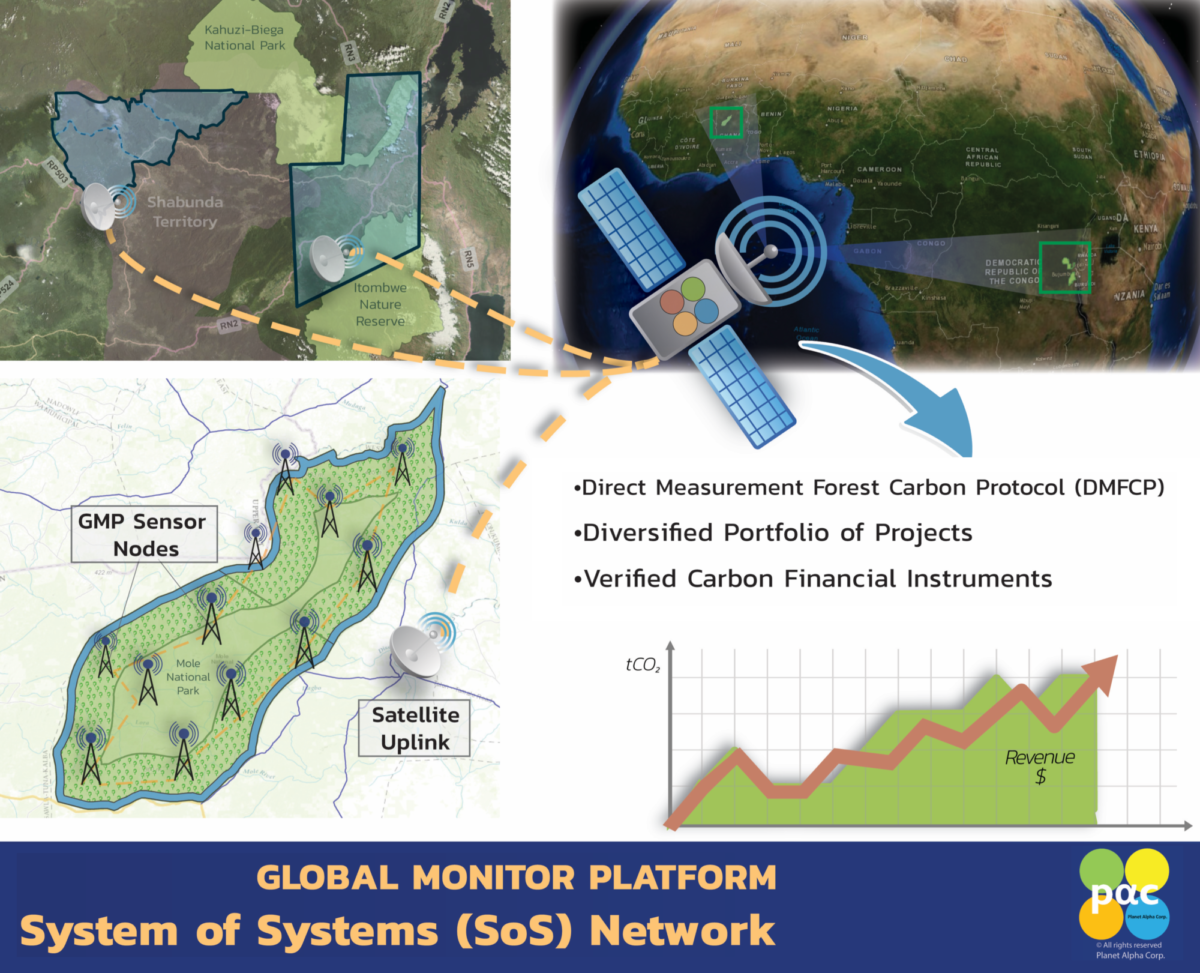
Le Carbone de l’Afrique
A Multi-Sensor Network of Analyzers Supporting Verifiable Offset Creation and the Global Scientific Community
GHG emission measurements are urgently needed to reduce uncertainty for annual GHG emissions across Africa
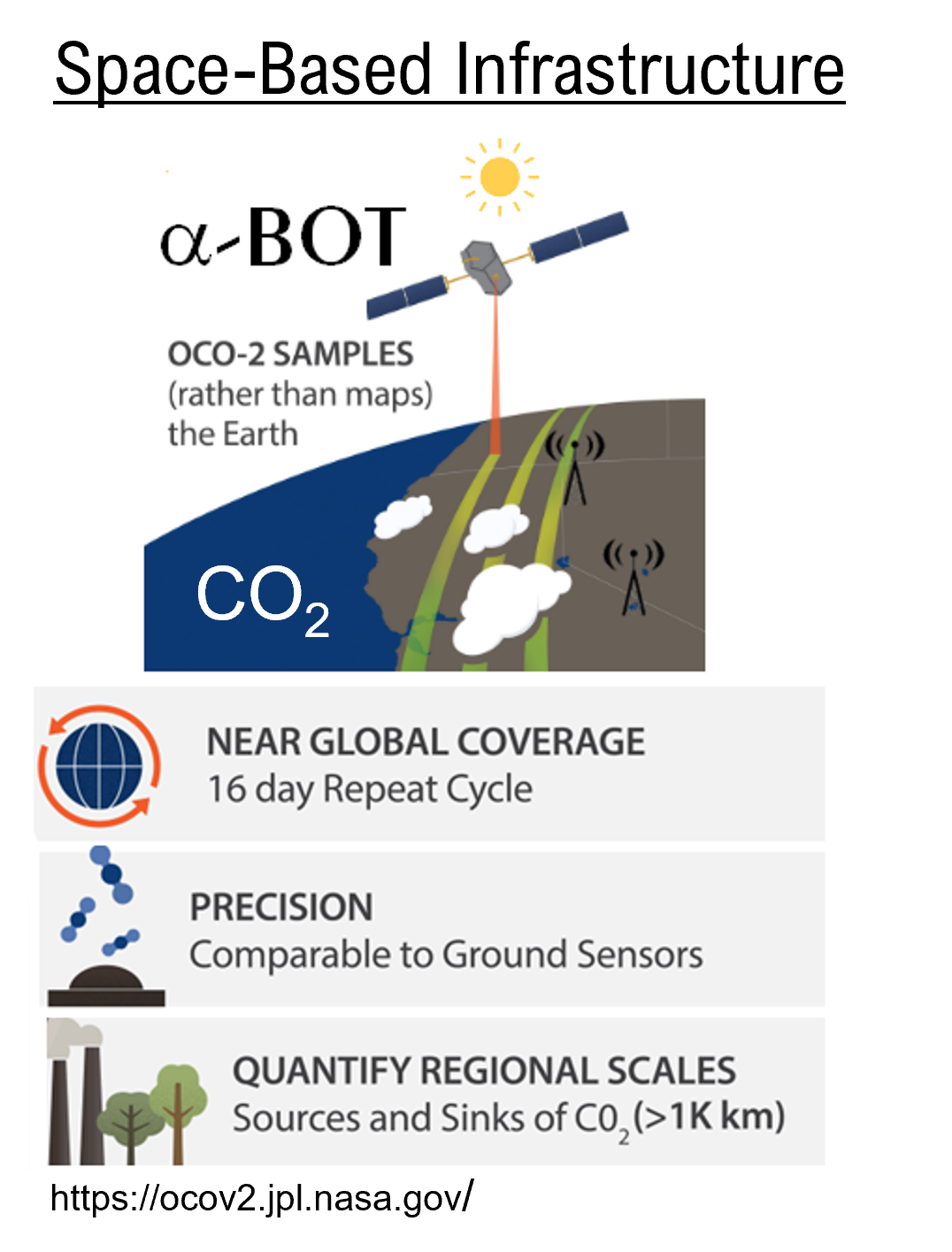 Planet Alpha Corp. GHG measurements are made with the Global Monitor Platform (GMP), a multi-sensor platform comprised of available and experimental field analyzers produced by Planetary Emissions Management Inc., Cambridge, MA, USA, Ground-based sensors are integrated with space-based direct measurement of column CO2 employing the NASA Orbital Carbon Observatory (OCO-2,3) and the Moderate Resolution Imaging Spectroradiometer (MODIS) satellites. Satellite data serve as the basis for initial carbon offset creation as α-Biosphere Offset Tokens (αBOT), flexible, fractionalized offsets suitable for fiat and crypto carbon markets. Ground-based sensors provide small-scale data for net ecosystem exchange (NEE) for offset creation. Africa is currently uncovered by direct measurement of greenhouse gases except for the Yangambi Congo Flux research tower described here: https://meta.icos-cp.eu/resources/stations/ES_CD-Ygb.
Planet Alpha Corp. GHG measurements are made with the Global Monitor Platform (GMP), a multi-sensor platform comprised of available and experimental field analyzers produced by Planetary Emissions Management Inc., Cambridge, MA, USA, Ground-based sensors are integrated with space-based direct measurement of column CO2 employing the NASA Orbital Carbon Observatory (OCO-2,3) and the Moderate Resolution Imaging Spectroradiometer (MODIS) satellites. Satellite data serve as the basis for initial carbon offset creation as α-Biosphere Offset Tokens (αBOT), flexible, fractionalized offsets suitable for fiat and crypto carbon markets. Ground-based sensors provide small-scale data for net ecosystem exchange (NEE) for offset creation. Africa is currently uncovered by direct measurement of greenhouse gases except for the Yangambi Congo Flux research tower described here: https://meta.icos-cp.eu/resources/stations/ES_CD-Ygb.
The Planet Alpha Global Monitor Platform will include basic instrumentation for CO2 eddy covariance. Analyzers for CH4 and N2O and Isotopologues (e.g., 13CO2, 13CH4, 15NNO) will be added as the network expands. In addition, each site will be linked to a Fourier-Transform Spectrometer (FTS) that looks at the sunlight that passes through the whole atmospheric column in which the infrared was absorbed by GHGs. The result is that the FTS expands the determination of GHGs and additional species into the atmospheric column. FTS observations sample the total atmospheric column (0-100 km altitude) – in contrast to the near-surface measurements that typically sample the Planetary Boundary Layer (about 1-2 km altitude). This combination of analyzers for Africa will revolutionize GHG data for Africa contributing to the collection of basic scientific data while providing verifiable GHG offsets. The FTS instruments are part of the Total Carbon Column Observing Network (TCCON) established in 2004. Moreover, all satellite instruments for GHGs rely on TCCON for calibration, supporting Planet Alpha’s use of CO2 sampling satellites such as the Orbital Carbon Observatory (OCO_2,3) and MODIS, also employed combined with additional data, to determine net ecosystem exchange (NEE).
The current TCCON locations are shown below with the clear absence of locations for the continent of Africa. Only one eddy covariance tower (e.g., Yangambi) is currently operating in Africa. Note previous eddy covariance project data for CarboAfrica summarized in the tabs below.
The Goal: Establish a Network of ~20 GMP with Eddy Covariance and FTS Analyzers Across Africa
Proposed locations (59) for selection of ~20 sites across Africa as shown below, adapted from Nickless et al. (2020). Planet Alpha supports the African CArbon Budget Observing Network (ACABON).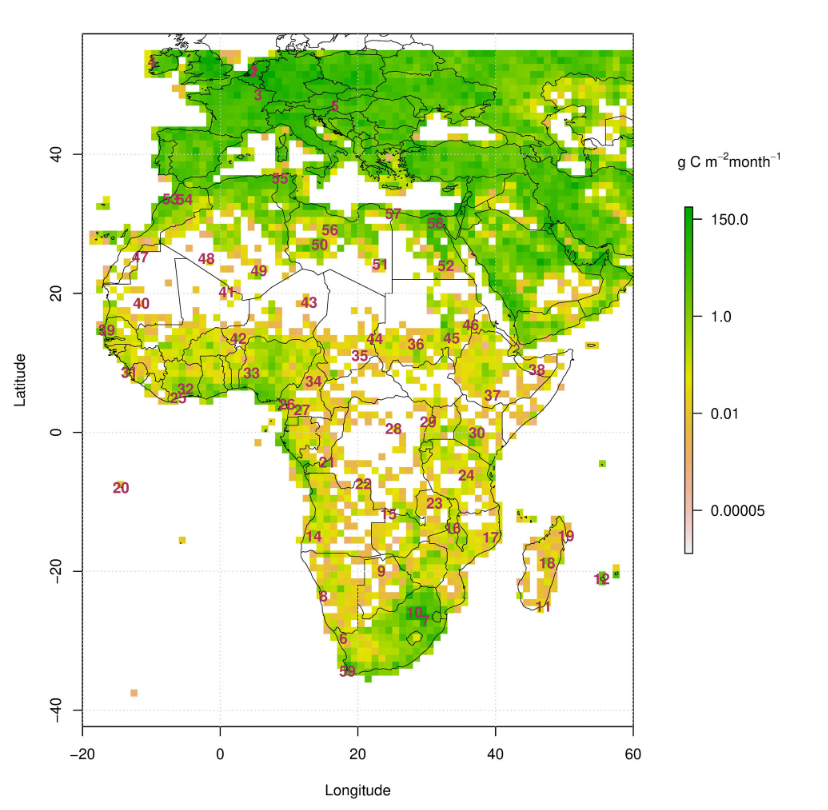
GMP field analyzers across Africa will be networked in an automated System of Systems (SoS) that collects data simultaneously from diverse sensors in the field, analyzes and reports data, and can be controlled remotely. Communications are provided by satellite telemetry. Authorized users can access real-time data from any authorized computer or mobile device.
Africa as a region is both a sink and source of GHGs, but the magnitude of fluxes is unknown. Moreover, the population in Africa is expected to proliferate in the coming decades. It is anticipated that over half of global population growth between now and 2050 will occur in Africa with the largest gains occurring in the Congo region. Population is expected to top ~9.8 billion individuals by 2050.
The importance of understanding the GHG budget of the African continent and her countries cannot be understated. The Congo region is home to the second-largest rainforest on Earth and is vulnerable to the pressures of population growth. The Planet Alpha approach is to link forest growth and sustainable management with the support of landowners and inhabitants. Direct measurement of GHG fluxes across the project area, the basis for verifiable offset credits, will be available to augment decarbonization efforts by corporations.
While valuable efforts have been made to initiate GHG flux measurements across Africa, such efforts have not established long-term observations or expansion of locations. Planet Alpha will build on the foundation of initial observations, such as CarboAfrica, and expand the number of observation locations across Africa in collaboration with international scientific institutions and the private sector. The SoS infrastructure is designed for long-term operation in concert with long-time horizons planned for forest projects up to 30 years duration.
Join our network of GHG Analyzers.
Summary of GHG Flux Measurements for Africa
CarboAfrica
The CarboAfrica project initiated GHG flux measurements during the period from 2006 to 2009.
The project closed in 2010.
Please refer to the links for project information.
http://www.carboafrica.net/sites_en.asp
http://www.cirad.fr/en/news/all-news-items/articles/2010/science/carboafrica
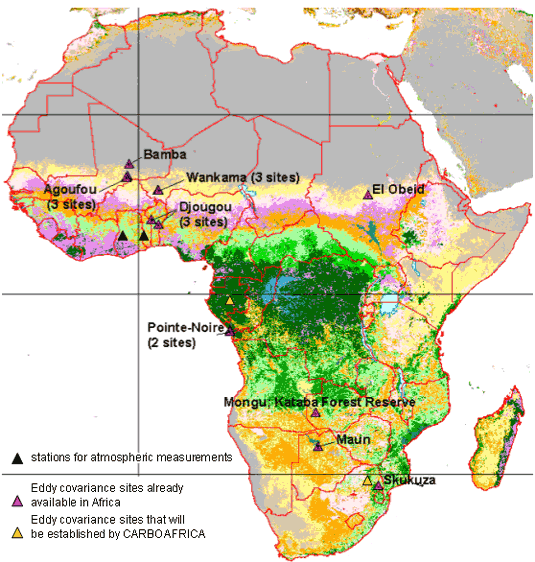
Map reference:

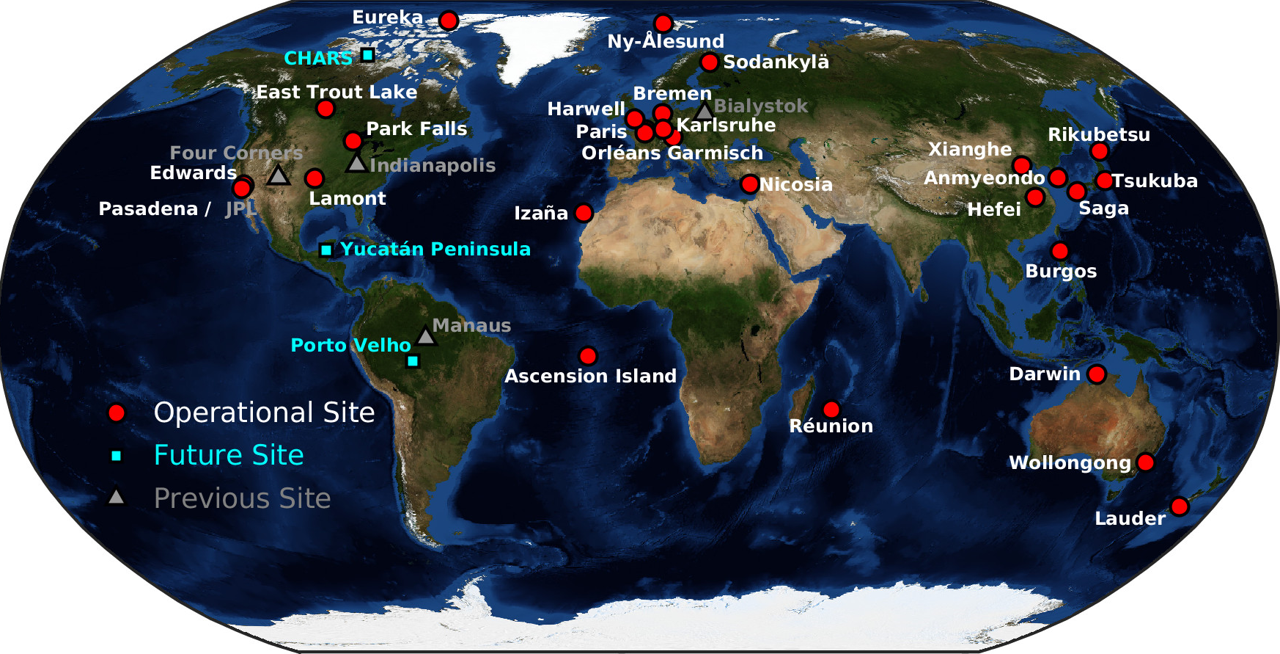

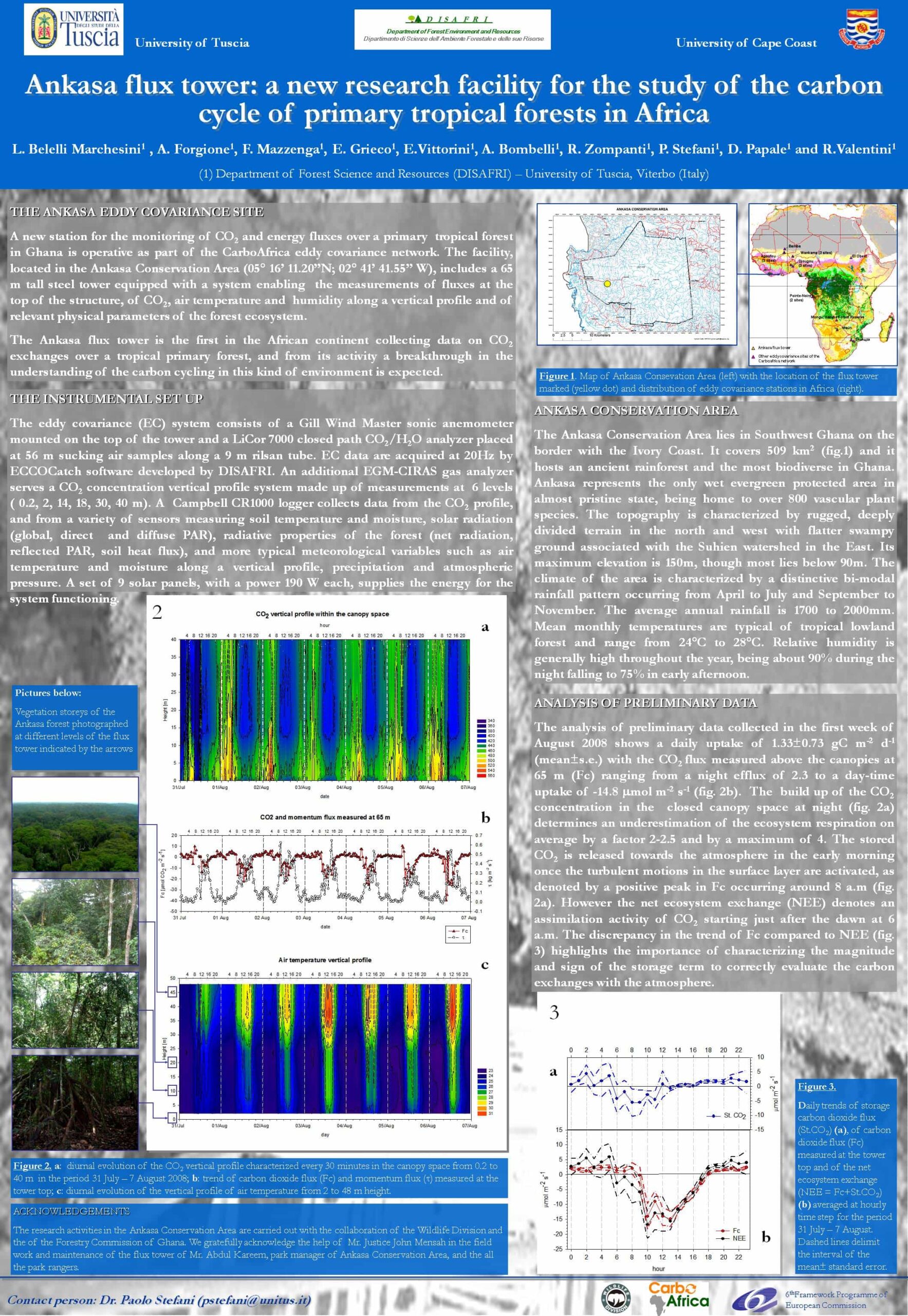



 Biodiversity (B) Avoided Carbon
Biodiversity (B) Avoided Carbon Gorilla Habitat (G) Avoided Carbon
Gorilla Habitat (G) Avoided Carbon Methane (CH4)
Methane (CH4)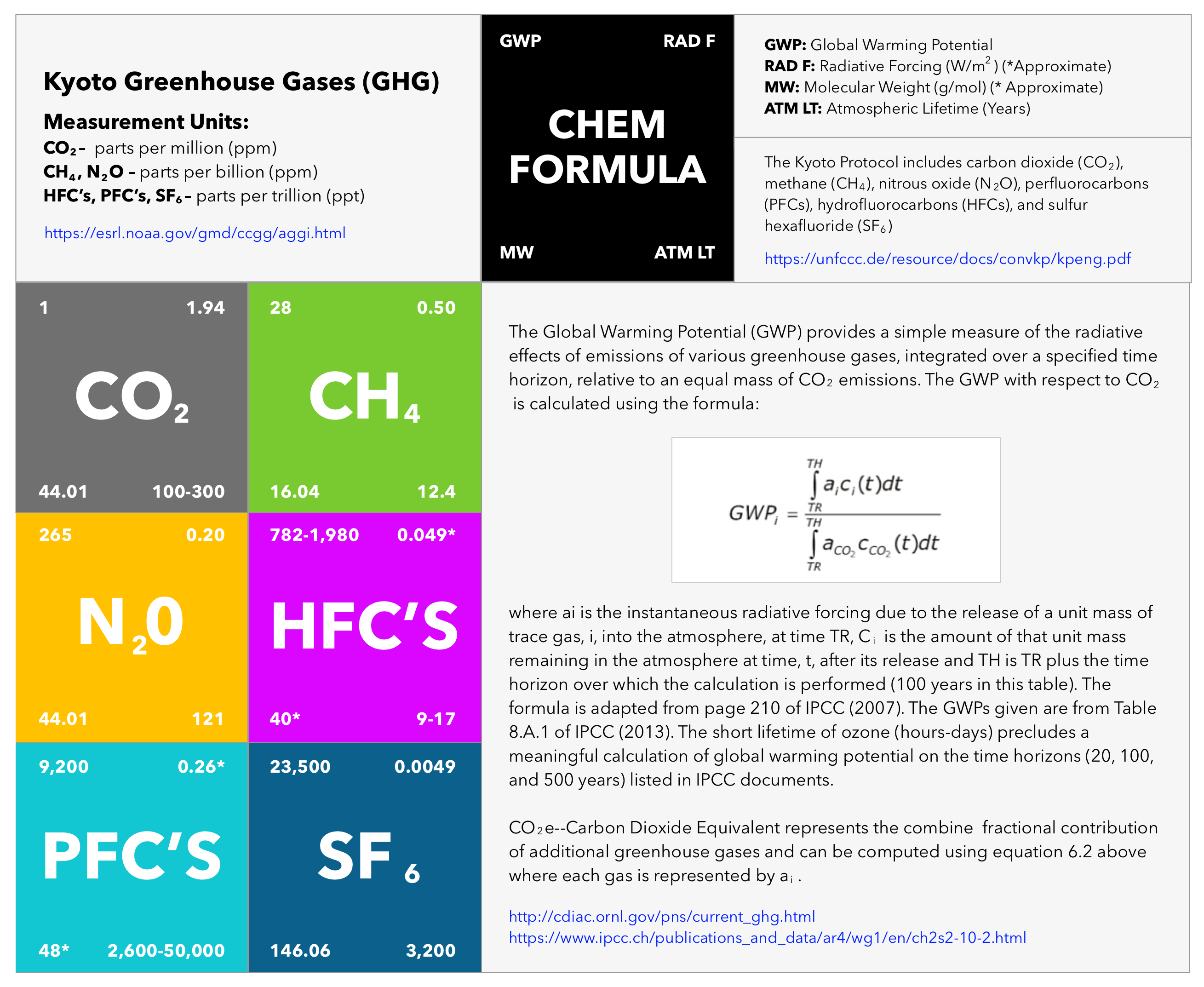
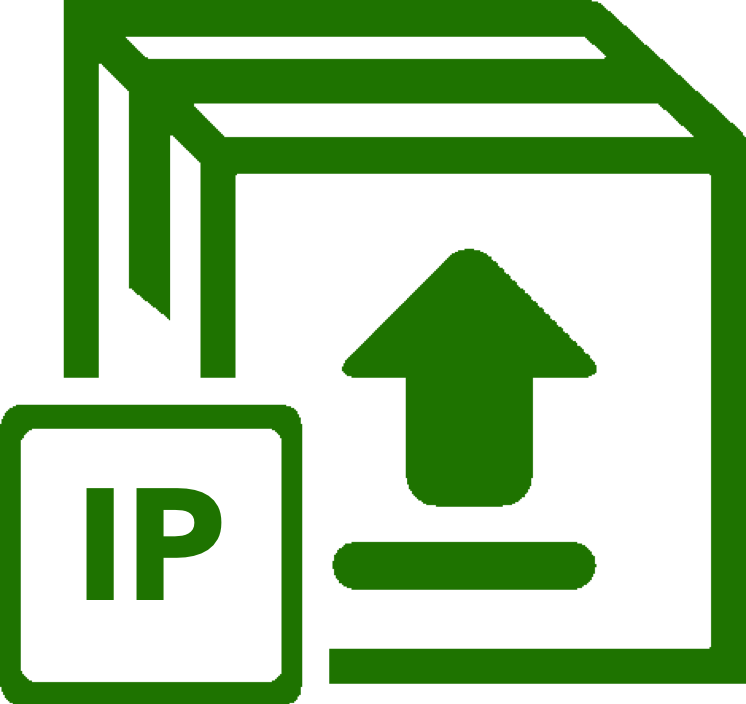 Indigenous Peoples (IP) Avoided Carbon
Indigenous Peoples (IP) Avoided Carbon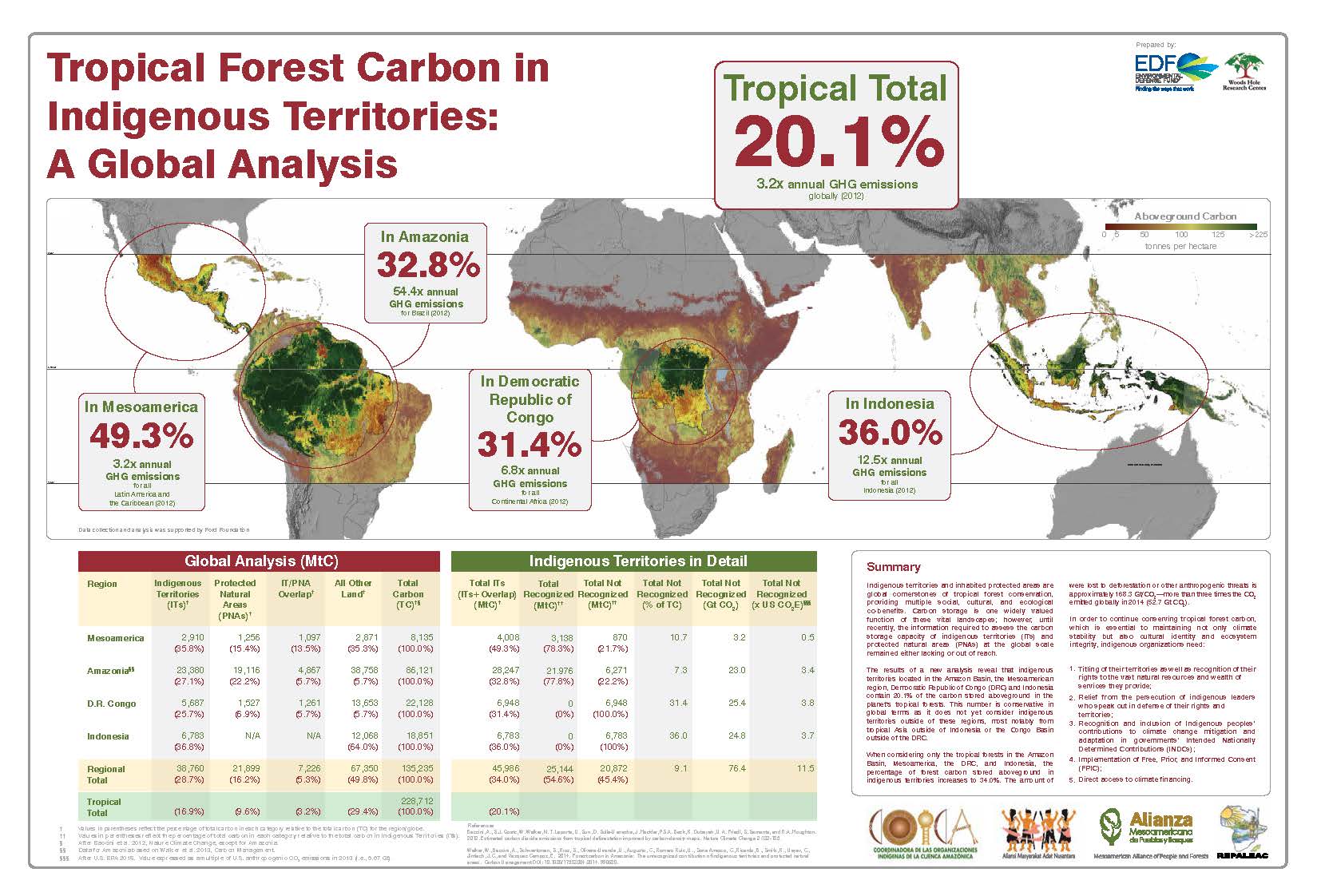
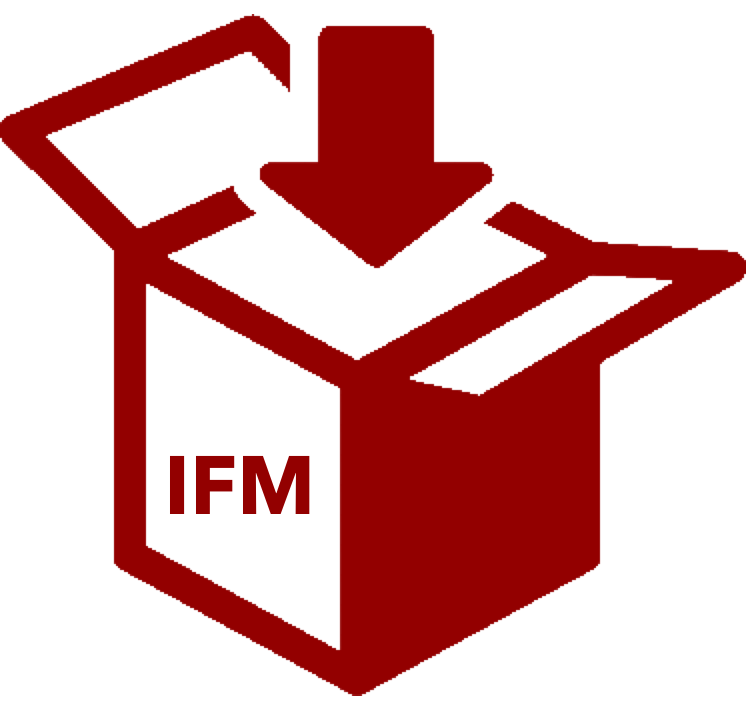 Improved Forestry Management (IFM) Sequestration
Improved Forestry Management (IFM) Sequestration Afforestation (AF) Sequestration
Afforestation (AF) Sequestration
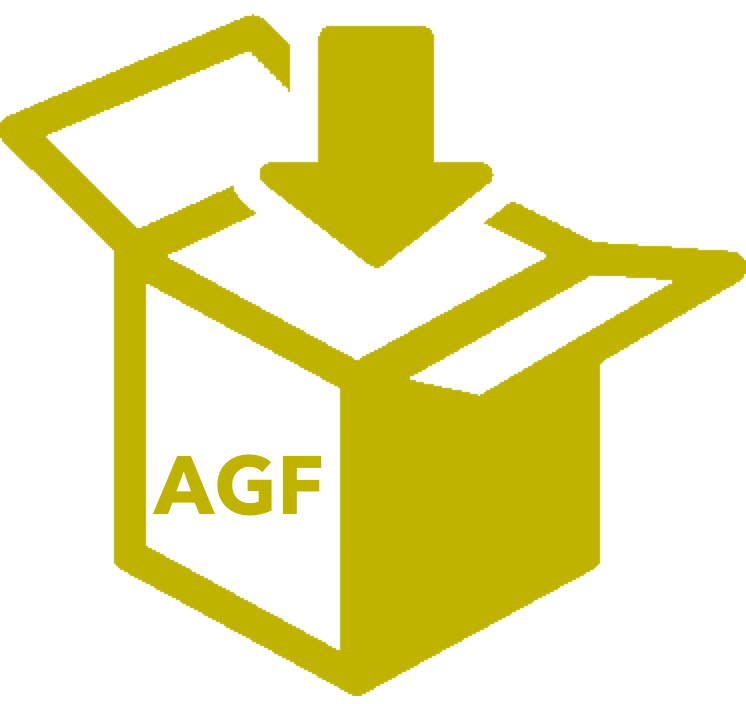 Agroforestry (GF) Sequestration
Agroforestry (GF) Sequestration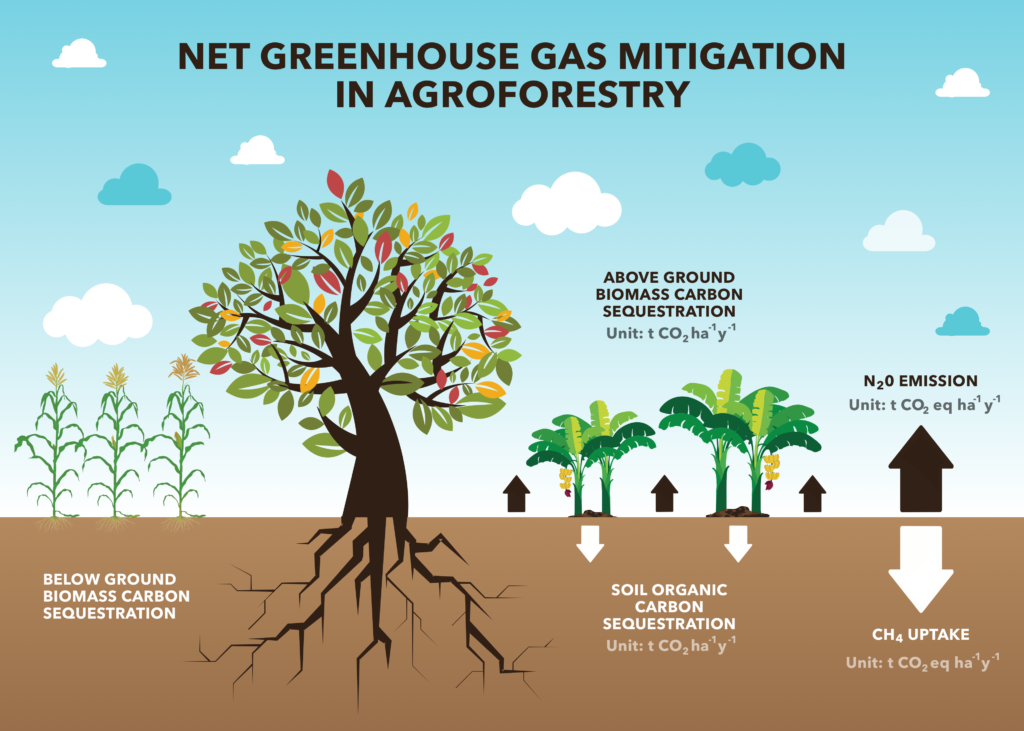
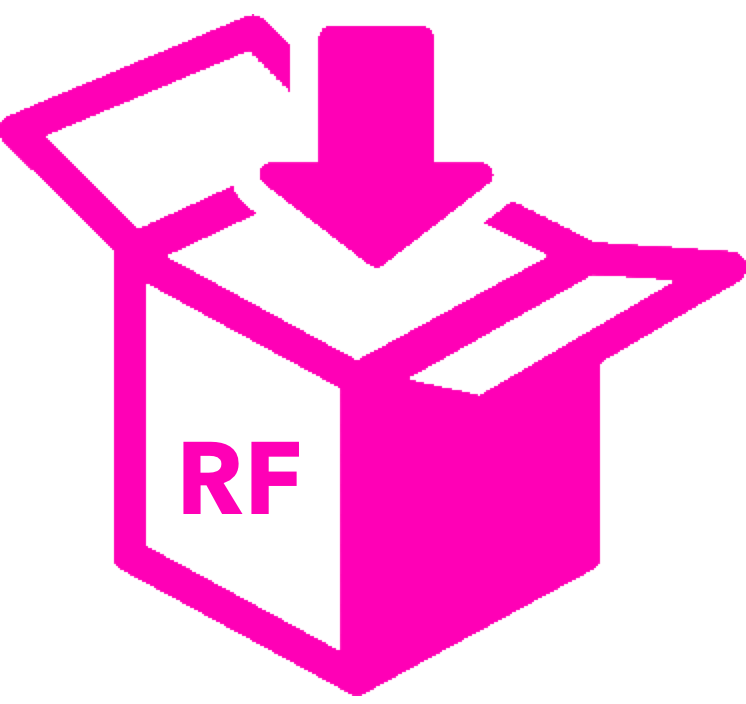
 The System of Systems (SoS)
The System of Systems (SoS) QuantumQarbon
QuantumQarbon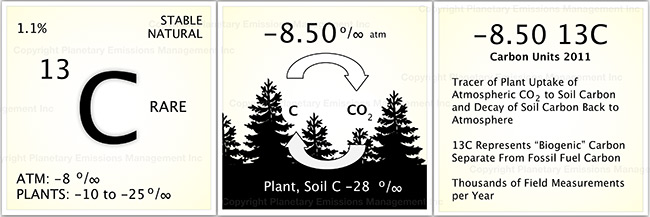
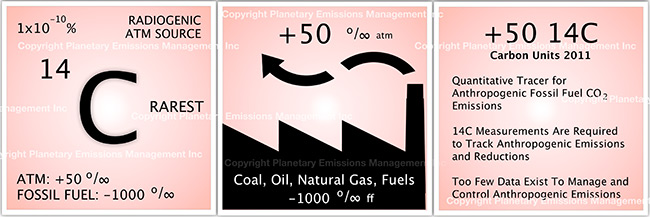
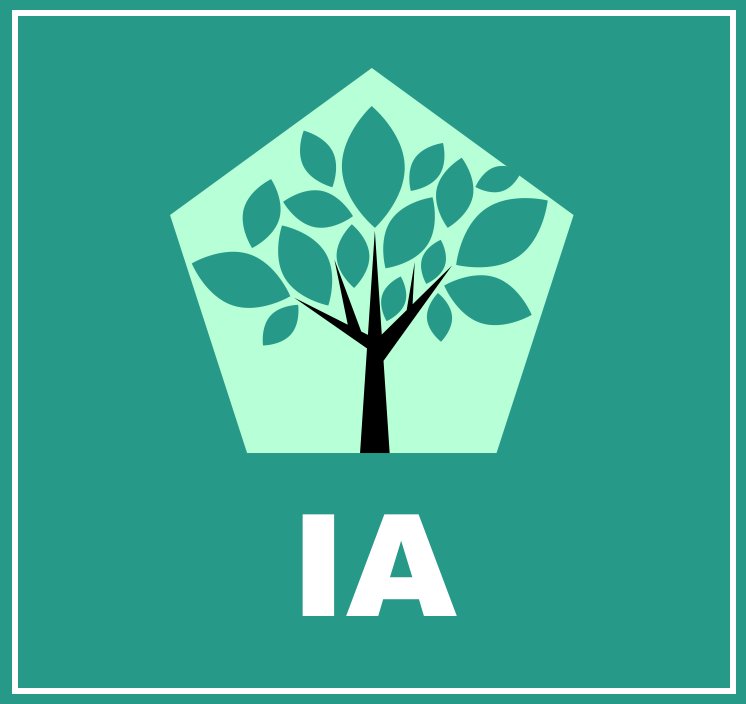 Carbon isotopic analysis (IA)
Carbon isotopic analysis (IA)

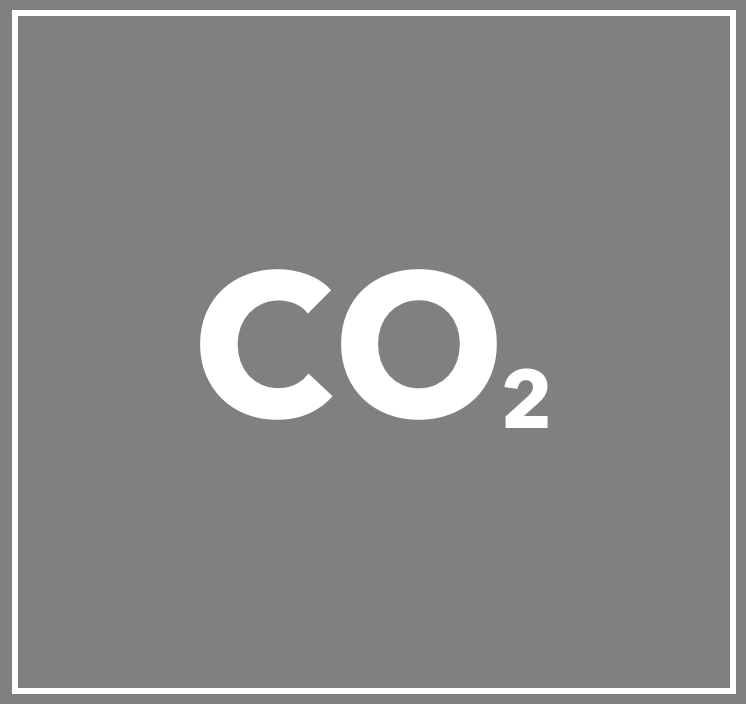 Carbon Dioxide (CO2)
Carbon Dioxide (CO2) Working Forest Carbon Sequestration
Working Forest Carbon Sequestration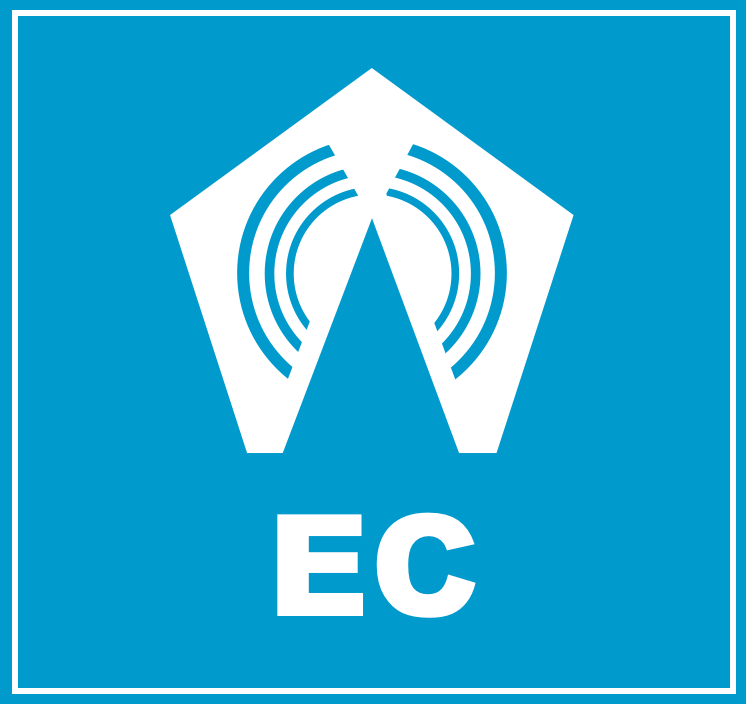 Eddy Covariance (EC)
Eddy Covariance (EC) Soil Accumulation Chambers (SAC)
Soil Accumulation Chambers (SAC) Soil gas probes (SGP)
Soil gas probes (SGP) Exsolvation of Dissolved CO2 (CO2(aqueous)) and CH4
Exsolvation of Dissolved CO2 (CO2(aqueous)) and CH4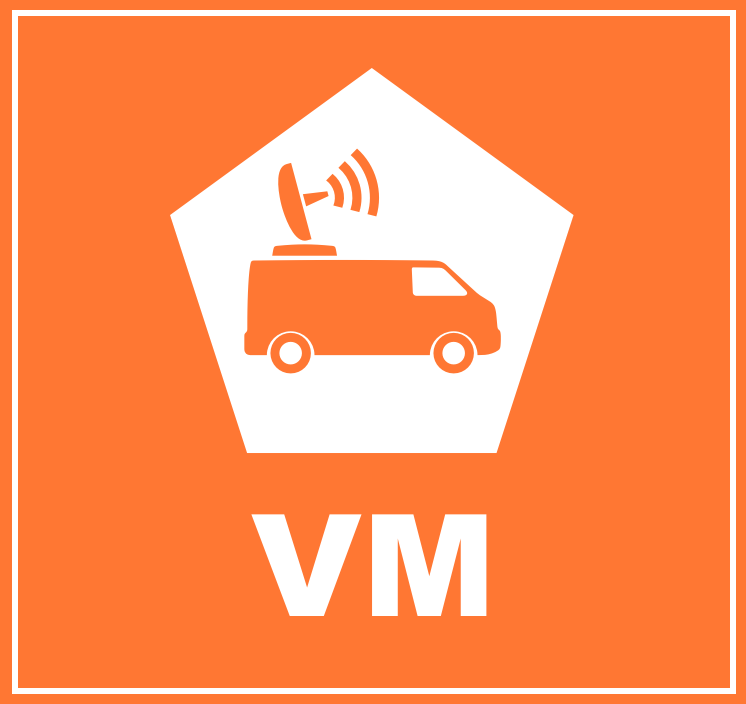 Vehicle Mounted Fast Response Gas Analyzers (VM)
Vehicle Mounted Fast Response Gas Analyzers (VM) Unmanned Aerial Systems (UAS) and Remote Sensing (RS)
Unmanned Aerial Systems (UAS) and Remote Sensing (RS)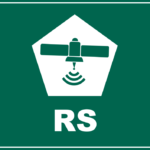 A variety of UAS’s may be used in a project to record the status of forest conditions at low altitude (e.g., ~1,000 ft) on a routine basis, when a disturbance has occurred (e.g., hurricane, drought, timber operations) or for surveillance of forest activity by landowners or others accessing the site. Typical capabilities may include spectral imaging of the tree canopy and mapping functions to reveal differences along the flight path over time. In addition, UAS’s may also carry miniaturized gas sensors for CO2, CH4 and other atmospheric gases. The use of remote sensing (RS) for ecological research is well documented covering spectral bands for normalized difference vegetation index (NDVI), leaf evapotranspiration and other features of the biotic and abiotic project area.
A variety of UAS’s may be used in a project to record the status of forest conditions at low altitude (e.g., ~1,000 ft) on a routine basis, when a disturbance has occurred (e.g., hurricane, drought, timber operations) or for surveillance of forest activity by landowners or others accessing the site. Typical capabilities may include spectral imaging of the tree canopy and mapping functions to reveal differences along the flight path over time. In addition, UAS’s may also carry miniaturized gas sensors for CO2, CH4 and other atmospheric gases. The use of remote sensing (RS) for ecological research is well documented covering spectral bands for normalized difference vegetation index (NDVI), leaf evapotranspiration and other features of the biotic and abiotic project area.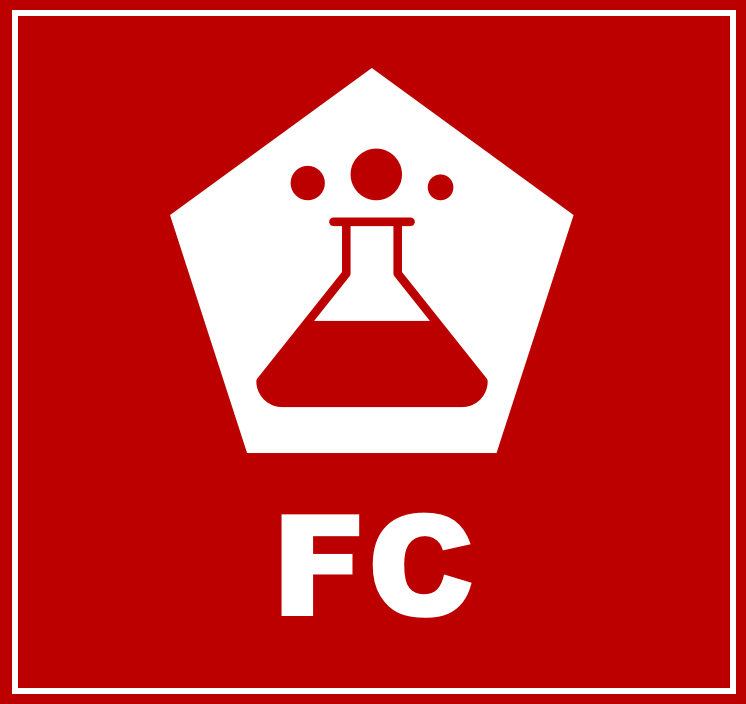 Flask Collection (FC)
Flask Collection (FC) Nitrous Oxide (N2O)
Nitrous Oxide (N2O) Sulfur Hexaflouride (SF6)
Sulfur Hexaflouride (SF6) Tree Plantation
Tree Plantation Perfluorocarbon (PFC)
Perfluorocarbon (PFC)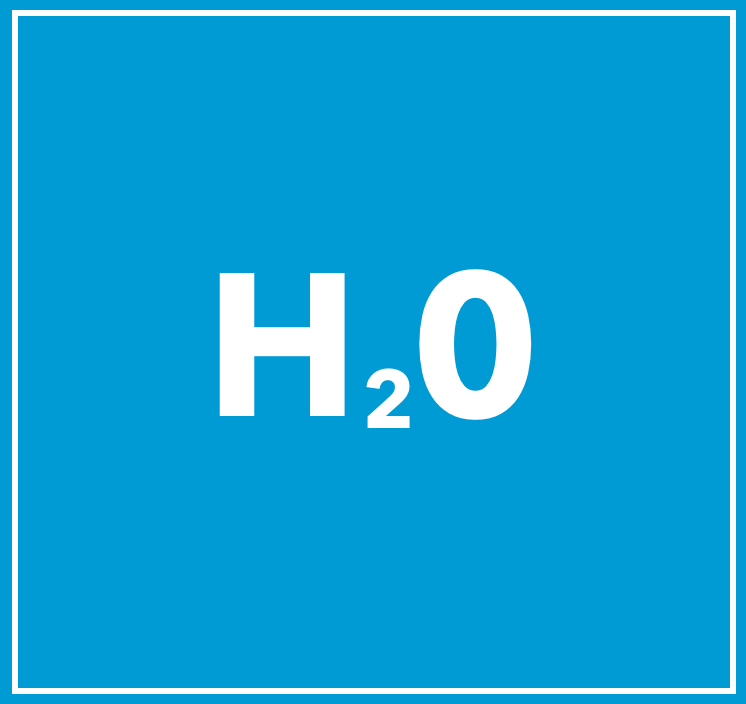 Water Vapor (H2O)
Water Vapor (H2O)